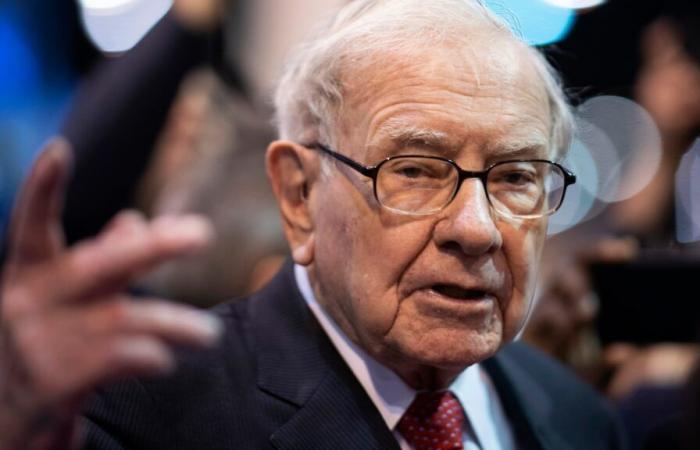The billionaire and businessman Warren Buffet, one of them to have resisted the effects of Donald Trump’s economic policies, charged the American president on Saturday, May 3. He criticizes her his approach to international relations, from a commercial point of view.
Businessman Warren Buffet estimated this Saturday, May 3, that “trade should not be a weapon”, criticizing the trade war launched by Donald Trump since his return to the White House.
“There is no question” as to the fact that touching trade, in particular via customs rights, “can be an act of war,” said Warren Buffett on Saturday at the general assembly of his conglomerate, Berkshire Hathaway.
Two months earlier, the investor had already issued similar comments during an interview to American television, adding that customs duties “constitute a tax on goods” and that “it is not the little mouse that pays them”.
Why does Donald Trump panic again?
The billionaire, who continues to lead his group at 94, did not directly mention Donald Trump or his administration directly. But, according to him, Washington should “try to trade with the rest of the world”.
“A serious mistake” to attack China and the world
“We want a prosperous world” and go in this direction “will not be (at) (at) from the United States, said Warren Buffett.
“It is a serious mistake, in my opinion, when you have seven billion and a half people who do not like you much and that you have 300 million who boast in one way or another of their success,” said the investor.
On the other hand, according to Warren Buffett, the setbacks of the financial markets and the nervousness of investors in the face of the trade war and its reversals “are really nothing”.
On Saturday, Berkshire Hathaway reported a profit of $ 9.6 billion for the first quarter, in net averse (-14%). Reported by action and excluding exceptional elements, given the most scrutinized on the market, it appears at 4.47 dollars, there too clearly decreases.
Warren Buffett managed to transform Berkshire Hathaway, a textile SME bought in the mid -1960s, into a gigantic conglomerate, now valued more than $ 1,000 billion and which currently has a cash flow of more than $ 300 billion.






